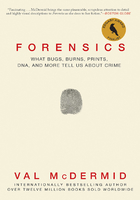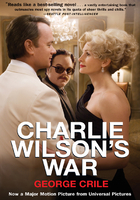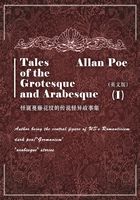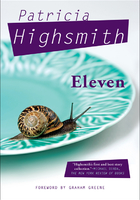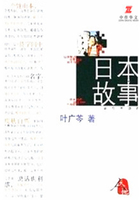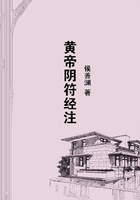It was often said that only divine flame could persuade anything to burn in Chough. Many joked that the villagers cooked their dinners over marsh lights.
Chough could be found by straying as far as possible from anywhere comfortable or significant, and following the smell of damp. The village had long since surrendered to a seeping, creeping rot. The buildings rotted from the bottom upward. The trees rotted from the inside out. The carrots and turnips rotted from the outside in, and were pale and pulpy when they were dug out.
Around and through the village, water seethed down the breakneck hillside in a thousand winding streamlets. They hissed and gleamed through dark miles of pine forest above the village, chafing the white rocks and learning a strange milkiness. Chough itself was more a tumble than a town, the houses scattered down the incline as if stranded there after a violent flood.
By day the villagers fought a losing battle against the damp. By night they slept and dreamed sodden, unimaginative dreams. On this particular night their dreams were a little ruffled by the unusual excitement of the day, but already the water that seeped into every soul was smoothing their minds back to placidity, like a duck's bill glossing its plumage.
One mind, however, was wakeful and nursing the black flame of rebellion. At midnight the owner of that mind could be found hiding in the local magistrate's dovecote.
This dovecote was large, and from the outside its conical roof bore a remarkable resemblance to a castle turret. At the moment, the dovecote was remarkably free of doves and remarkably full of twelve-year-old girl and oversized goose.
Mosca wore the wide-eyed look of one who is listening very carefully, and she chewed gently at the stem of her unlit pipe as she did so, feeling the splinters working their way up between her teeth. Her attention was painfully divided between the sound of approaching voices and the pear-shaped silhouette of a single dove against one of the little arched doorways above her. Trying to balance her weight on the slender perch poles with an agitated goose under one arm, Mosca was already regretting her choice of hiding place.
Each time a bird appeared at one of the openings, Saracen hissed. If the doves seemed to be hissing, this might make someone curious enough to investigate and discover Mosca hiding there at midnight with someone else's goose. Mosca had excellent reasons for not wanting to be dragged back home to face her uncle Westerly and aunt Briony. She had plans of her own, and none of them involved the sorts of punishments that would be waiting for her if she was caught on this night of all nights.
"We're much beholden to you, sir. If you had not chanced by and warned us, the fellow might have been fleecing our gullible housewives a month hence." It was the magistrate's voice. Mosca froze.
"It was not entirely a matter of chance." A young man was speaking, his voice gentle and reassuring, like warm milk. "When I changed horses at Swathe someone mentioned that a man named Eponymous Clent had been staying here for the last week. I knew him well by reputation as a villain and swindler, and your village was only a little out of my way."
"Well, you must delay your journey a little longer, I fear. You shall stay the night and let me thank you in broth, beef, and brandy." The snap of a snuffbox opening. "Do you indulge?"
"When it is offered so hospitably, yes."
The dove stared. It could see something crouching among the tangle of perches. Something big, something dark, something breathing. Something that gave a long, low hiss like skates across ice.
Mosca kicked out, and the toe of her boot caught the dove just beneath the snow-white plum of its chest, causing it to tumble backward into flight.
"Is something amiss?"
"No, I just thought for a moment ..."
Mosca held her breath.
"... I thought I could smell smoke."
"Ah, the snuff does have a touch of brimstone in it."
"So ..." The younger man sniffed once, twice, to clear his nose, and then spoke again in a less nasal tone. "So you will no doubt keep Mr. Clent in the stocks for a day or two, and then have him taken to Pincaster for further punishment?"
"I believe we must. Chough has a magistrate but lacks a gibbet ..."
The voices faded, and a door clicked to. After a time, the faint orange ache of candlelight in the nearest window dulled and died.
The roof of the dovecote stealthily rose, and two sets of eyes peered out through the gap. One pair of eyes were coal beads, set between a bulging bully brow and a beak the color of pumpkin peel. The other pair were human, and as hot and black as pepper.
Mosca's eyes had earned her countless beatings, and years of suspicion. For one thing, they had a way of looking venomous even when she held her pointed tongue. For another thing, her eyes wielded a power that was beyond everyone else in Chough except the magistrate. She could read.
Everybody knew that books were dangerous. Read the wrong book, it was said, and the words crawled around your brain on black legs and drove you mad, wicked mad. It did not help that she was the daughter of Quillam Mye, who had come to Chough from Mandelion amid rumors of banishment, bringing city thoughts crackling with cleverness and dozens of dark-bound, dangerous books. Mosca might as well have been the local witch in miniature.
After her father's death, Mosca's eyes had at least earned her a roof over her head. Her uncle, the older brother of her dead mother, was glad to have someone to take care of his accounts and letters. His niece was useful but not trusted, and every night he locked her in the mill with the account book to keep her out of trouble. This evening he had turned the key upon her as usual, without knowing that he was doing so for the very last time. He was now snoring like an accordion amid sweet dreams of grist and fine grain, with no inkling that his niece was loose yet again and embarked upon a desperate mission.
Mosca wrinkled her pointed nose in a sniff. There was a faint hint of smoke on the night air. Her time was running out.
A week before, a man named Eponymous Clent had arrived in Chough and talked his way into every heart and hearth. He had bewitched the entire village with an urbane twinkle. That afternoon, however, Chough had fallen out of love with him just as quickly and completely. Word had spread that a visitor to the magistrate's house had exposed Clent as a notorious trickster and cheat. Dusk had seen him shackled in the stocks and almost friendless.
Almost, but not quite. Since the burning of her father's books, Mosca had been starved of words. She had subsisted on workaday terms, snub and flavorless as potatoes. Clent had brought phrases as vivid and strange as spices, and he smiled as he spoke, as if tasting them. His way with words had won him an unlikely rescuer.
The magistrate's house had originally been built on a raised lump of land with two deep cracks cut around it on either side, providing a channel for the water. This had been all very well, until the water had enjoyed one of its wild nights, in which it pulled the hillside into new shapes and threw boulders like dice. In the morning, the magistrate had found a hill of white silt and rubble piled up against the back of his house, and the sweet spring sunlight gleaming upon the streamlets as they poured across his roof and dripped in diamonds from his thatch.
In an attempt to snatch the magistrate's vegetable garden from the domain of the ducks, a local carpenter had constructed a simple shaduf, a long pole which seesawed on a central strut and had a bucket on one end to scoop up the water. The base stood on four wheels so that it could be moved around the garden.
Mosca slipped to a window of the magistrate's house, slid a knife into the frame, and levered the window slightly ajar. Against the opposite wall of the darkened parlor hung the magistrate's ceremonial keys.
Champing furiously on her pipe, she pushed her handkerchief into the bottom of the pail, then maneuvered the long arm of the shaduf in through the window. The machine proceeded in jolts, as the wheels caught on rough ground, and the bucket swayed dangerously, now nearly rattling a pewter plate, now nearly chiming against a warming pan. A jolt forward, another jolt ... the ring of keys was nudged off its hook and fell into the bucket, its clang muffled by the handkerchief. The metal bucket gonged gently against the window frame as Mosca drew it back, and a moment later the magistrate's keys were in her hand. The key to his chest of silver plate, the key to the village's tithe box ... and the keys to the stocks.
Mosca pulled off her boots and slung them around her neck, then hitched and pinned her skirts. Like many of the younger girls of Chough, she wore knee breeches under her skirts, to make wading easier.
She stooped to scoop up Saracen once again. Anyone else taking such liberties would have staggered back with a broken arm. However, Mosca and Saracen shared, if not a friendship, at least the solidarity of the generally despised. Mosca assumed that Saracen had his reasons for his persecution of terriers and his possessive love of the malthouse roof. In turn, when Mosca had interrupted Saracen's self-important nightly patrol and scooped him up, Saracen had assumed that she too had her reasons.
Beneath them, the white roofs of lower Chough glimmered under a bright moon as if they had been iced.
The milky water of Chough left white bathtub rings on the sides of streambeds. Plants that trailed in the flow grew chalky, until they dabbled in the water with leaves of stone. A sock left in a stream would petrify, until it seemed that a careless statue had left it there after paddling.
Children of Chough were told that if they misbehaved they would be hung upside down by their ankles beneath the drip, drip of a waterfall, so that in the morning they would be stone children, their mouths still making whistle shapes from spitting out the water.
There was no escaping the sound of water. It had many voices. The clearest sounded like someone shaking glass beads in a sieve. The waterfall spray beat the leaves with a noise like paper children applauding. From the ravines rose a sound like the chuckle of granite-throated goblins.
The goblins chuckled at Mosca as she scrambled down the slicked roof of Twence the Potter's hut. She realized that she would never hear the sound of their chuckle again, and to her surprise felt a tiny sting of regret. There was no time for hesitation, however.
The next house down the slope belonged to the Widow Wagginsaw. Mosca misjudged the leap onto the domed roof and landed heavily. Her boot soles slithered, and she fell to her knees.
Below, a sleep-choked voice quavered a question, and a tinderbox hissed and spluttered into life. Here and there across the cracked surface of the roof, Mosca saw veins of dim, reddish light appear. Someone was moving slowly toward the door with a candle.
Mosca hugged herself close to the chill, wet stone, and started to wail. The wail started deep in her throat, soared like an off-key violin, then dropped into a guttural note. She repeated it, and to her intense relief it was answered by a choir of similar wails below, all tuned to different pitches.
The Widow kept cats—thin, bedraggled creatures that looked like weasels and wailed at anything.
The Widow would often wail as well, and because she was the richest person in Chough no one ever told her to stop. If the Widow thought there was a thief on the roof, Mosca knew that her wails would be heard all over Chough. But the Widow had been wailing all afternoon, ever since she had learned the truth about Clent, and perhaps that had worn her out. After a few minutes the veins of light dimmed and vanished. The Widow thought it was one of her own cats on the roof, and had gone back to bed.
A clamber down the waterwheel of Dogger's Mill, a scramble across the roof of the Chide household, and then Mosca was wriggling through the fence that separated Lower Chough from the Whitewater plain. The fence was little more than a row of spiked iron railings driven into the rock, to let out the water and keep in the children and chickens, both of whom had a way of falling into the rapids, given half a chance. The metal spokes bled rust trails across the white stone around them, and pointed outward like spikes around a fort. They were spiked to discourage wild dogs and poachers.
Emerging from the fence, Mosca rubbed the rust from her cheek. There was thistledown fear in her throat, her chest, and the center of her palms. The spikes were also meant to keep out Brackle and Grabspite.
Brackle had a chest like a barrel and skin that looked as if it might have belonged to an even bigger dog, with great black jowls that wobbled when he barked.
Grabspite had a long, low lope, as if he had learned it from watching the wolves. He had a wolfish look about his narrow muzzle and he could outrun a deer.
The two dogs belonged to the magistrate, as far as they belonged to anyone, and protected the lower border of Chough during the hours of the night. Mosca had seen them by daylight any number of times, but somehow it was very different to know that one or another might suddenly bound out of the woods and bear her down in a flash of teeth.
What was that? A bush dipping a curtsey, or an animal crouching low to watch her? Was that a lean, pointed face with a long jaw?
Mosca cupped her hands under Saracen's weight and lifted the goose up above her head. Startled, he cycled with his feet, the rough but clammy webs chafing against her arms. His great wings spread wide as he tried to find his balance. When Mosca lowered him again, the wolfish face among the trees was gone.
In Chough, Brackle and Grabspite were regarded with superstitious terror. The villagers feared the bullying of the blacksmith, who feared the wailing of the Widow, who feared the might of the magistrate, who, in his own dry-as-parchment heart, feared his two terrible dogs.
Even Brackle and Grabspite, however, were afraid of Saracen.
The throaty roar of distant waterfalls was now audible. Another faint trickle of sound could also be heard, a dismal, whimpering string of words.
"... starved, robbed of my dignity, and laid bare to the ravages of the elements ..."
The greatest boulder on the shingle plain was known as the Chiding Stone. It stood ten feet high and was shaped somewhat like a saddle. Over the centuries, countless nagging wives and willful daughters had been chained there and mocked. Their names were etched into the stone by the magistrate of the time, along with a description of their crimes: "Mayfly Haxfeather, for Reducing Her Husband to Shreds with the Lashings of Her Tongue," and, near the main dip of the saddle, where centuries of bottoms had worn a rounded hollow, "Sop Snatchell, for Most Willful and Continual Gainsaying."
The Stone's sides were pockmarked with strange dimples and bulges, and easy for Mosca to clamber up. From the top of the Chiding Stone the moonlight showed her a clear view of the rocky pedestal five yards beyond, and the man sprawled upon it.
He was plump, in a soft, self-important way. His puffed-out chest strained the buttons of his waistcoat. They were fine buttons, though, and much polished, as if he took pride in his appearance. His coat was a little crumpled and disarranged, but this was hardly surprising since he was suspended upside down, with his feet locked into a set of moss-covered stocks. A beaver hat and periwig lay sadly in the stream below, sodden and weed-strewn.
Since there was little he could do about his situation, he seemed determined to strike as picturesque and dramatic a pose as possible. The back of one hand rested despairingly across his forehead, while his other arm was thrown wide in a flamboyant attitude. The only part of his face visible, therefore, was his mouth, which was pursed and plump, as if the world were too hot and coarse for his palate and he felt the need to blow it cool. The mouth was moving, spilling out long, languorous sentences in a way which suggested that, despite his predicament, the speaker rather enjoyed the sound of his own voice.
"... before even the Travesty in Three Acts had seen print ..." The speaker sighed deeply, and combed his fingers through his disheveled hair before placing his hand back across his eyes. "... and this is to be the end of Eponymous Clent, left out in the wilderness to be devoured by the savage geese and weaselly-faced imps of the forest—" The flow of words stopped abruptly. Cautiously he uncovered his eyes once more. "Are you human?"
It was a fair question. Rust, grime, and lichen covered Mosca's face like war paint, and dove feathers still clung to her hair and arms. The unlit pipe in her mouth also gave her an otherworldly, young-old look.
She nodded.
"What do you want?"
Mosca swung her legs over to sit in the "saddle" more comfortably, and took the pipe out of her mouth.
"I want a job."
"I fear that adverse circumstances have deprived me of all monetary advantages and simple luxuries and ... did you say a job?"
"Yes." Mosca pointed to the stocks. "I got the keys to those, but if I let you out, you got to give me a job and take me with you."
"Fancy," Clent said with a faint, desolate laugh. "The child wishes to leave all this." He glanced around at the dripping trees, the bone-white stones, and the cold colors of the distant village.
"I want to travel," Mosca declared. "The sooner the better," she added, with an apprehensive look over her shoulder.
"Do you even have the first idea of what my profession entails?"
"Yes," said Mosca. "You tell lies for money."
"Ah. Aha. My child, you have a flawed grasp of the nature of myth-making. I am a poet and storyteller, a creator of ballads and sagas. Pray do not confuse the exercise of the imagination with mere mendacity. I am a master of the mysteries of words, their meanings and music and mellifluous magic."
Mendacity, thought Mosca. Mellifluous. She did not know what they meant, but the words had shapes in her mind. She memorized them, and stroked them in her thoughts like the curved backs of cats. Words, words, wonderful words. But lies too.
"I hear you told the Widow a story 'bout how you was the son of a duke and was going to marry her when you came into your lands, but how you needed to borrow money so you could hire a lawyer and make your claim."
"Ah. A very ... emotional woman. Tended to take, ah, figures of speech very literally."
"And I heard you told the magistrate a story 'bout how there was this cure for his aches which you just needed to send for, but which cost lots of money. And I heard you told all the shopkeepers a story 'bout how your secretary was coming any day and bringing all your trunks and the rest of your money so you could pay all your bills then."
"Yes ... er ... quite true ... can't imagine what can have happened to the fellow ..."
"They brand thieves' hands, don't they?" Mosca added suddenly. "S'pose they'll brand your tongue for lying. S'pose it stands to reason."
Everything was very quiet for a few moments except for the rattle of water on rock and the sound of Clent swallowing drily.
"Yes, I ... I have quite lost patience with that secretary of mine. I suppose I must let him go, which means that I have a vacancy. Do you ... do you have any qualifications or assets to offer as a secretary, may I ask?"
"I got these." Mosca jangled the keys.
"Hmm. A practical outlook and a concise way of speaking. Both very useful qualities. Very well, you may unlock me."
Mosca slid down from her stone throne and scrambled up the craggy pedestal to slot the key into the lock.
"Purely out of interest," Clent asked as he watched her, upside down, "what so bewitches you about the idea of the traveling life?"
There were many answers Mosca could have given him. She dreamed of a world without the eternal sounds of glass beads being shaken in a sieve and goblins chuckling in the ravines. She dreamed of a world where her best friend did not have feathers and a beak the color of pumpkin peel. She dreamed of a world where books did not rot or give way to green blot, where words and ideas were not things you were despised for treasuring. She dreamed of a world in which her stockings were not always wet.
There was another, more pressing reason, though. Mosca raised her head and stared up the hillside toward the ragged treeline. The sky was warmed by a gentle redness, suggesting a soft but radiant dawn. The true dawn was still some three hours away.
"Very soon," Mosca said quietly, "my uncle will wake up. An' when he does ... he's likely to notice that I've burned down his mill."

